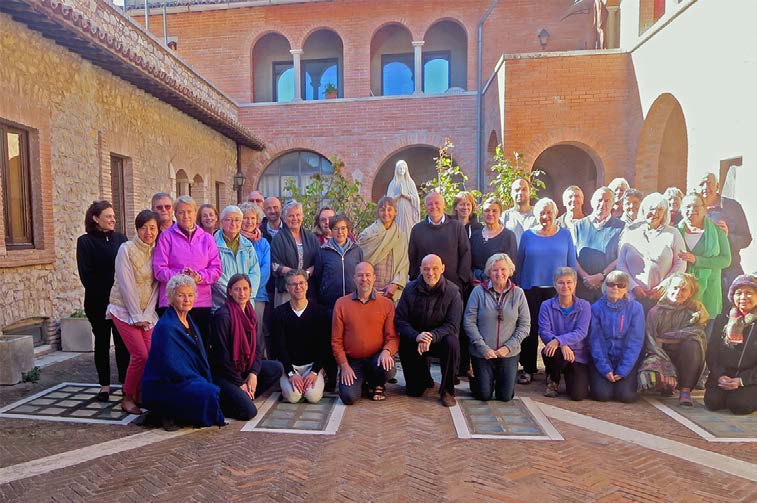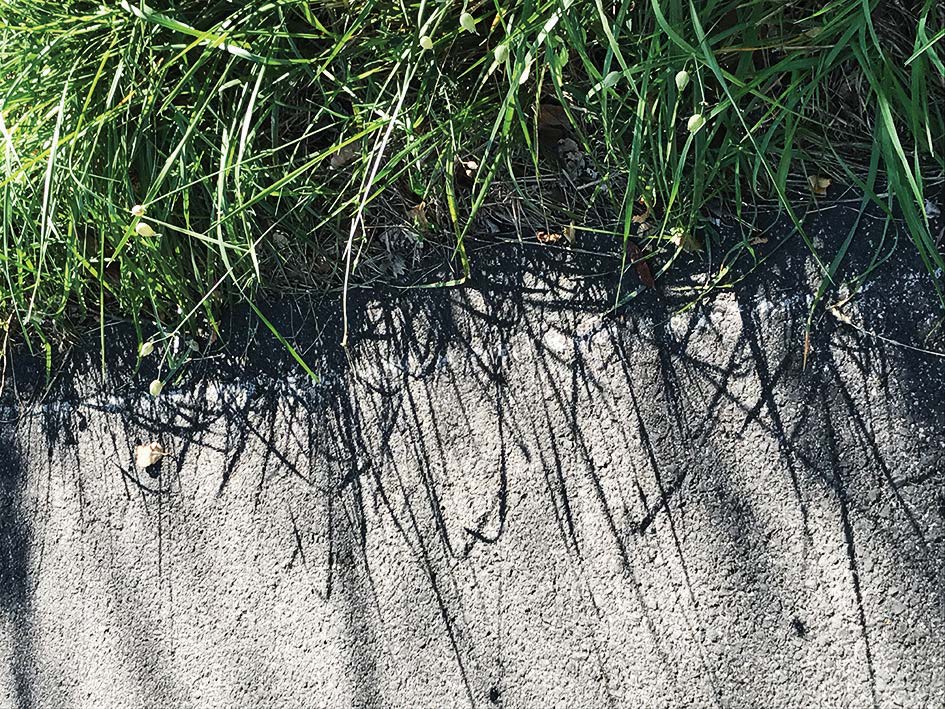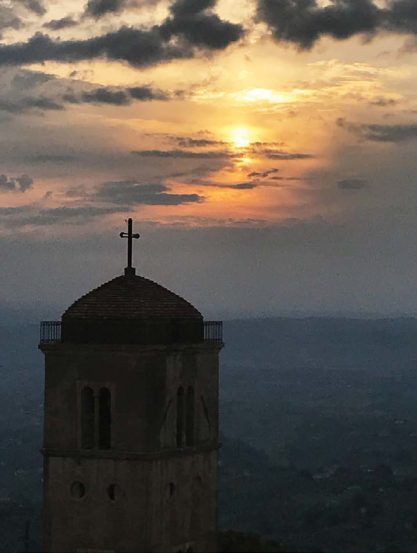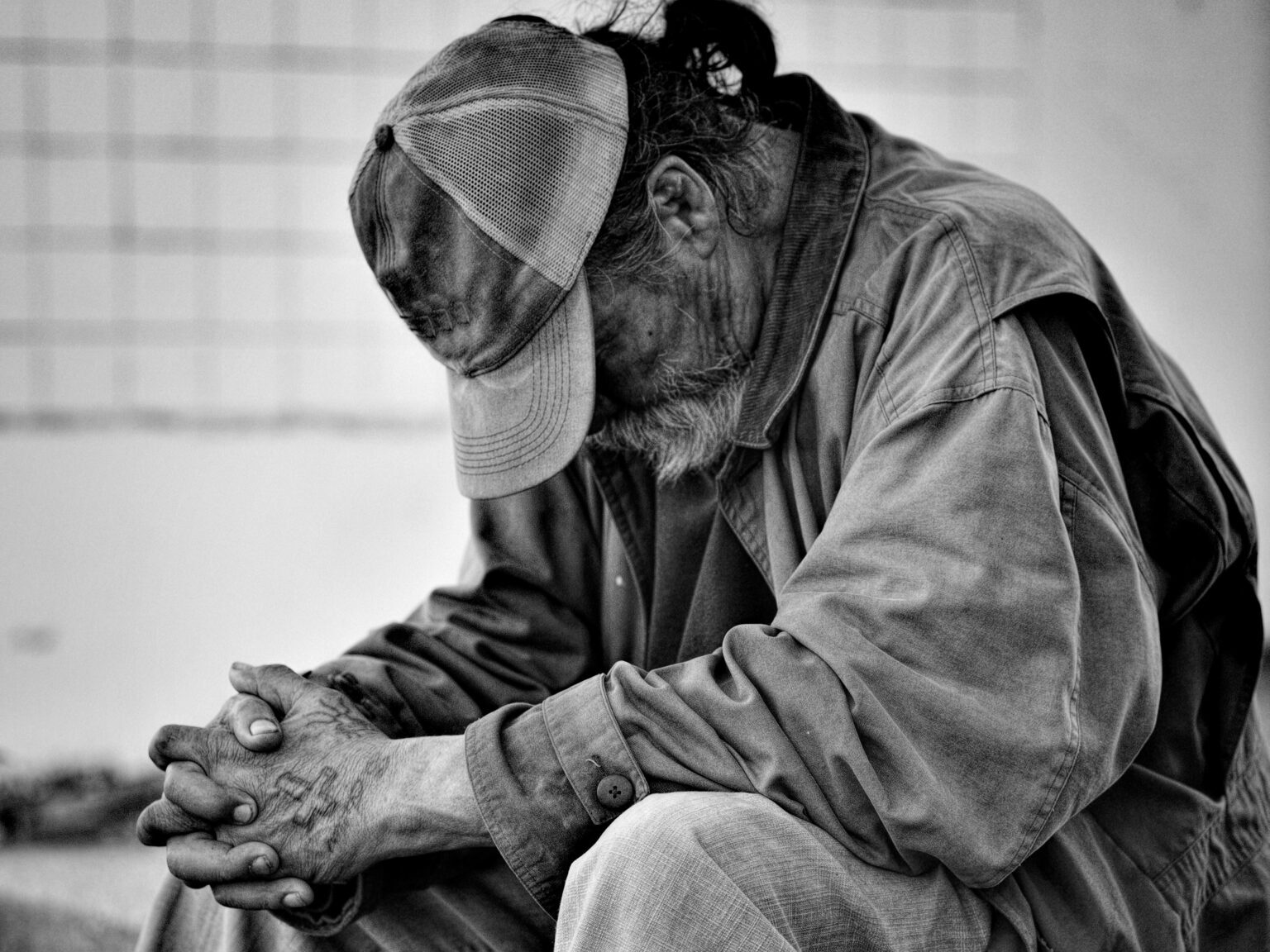Dear Friends,
I am writing this on the ‘desert day’ of our international School of Meditation Retreat taking place this week in a monastery near Rome. If you haven’t yet had the opportunity to do this retreat I urge to think about it. Many countries now host them. At the right time in your journey, the more frequent daily meditation sessions and the intensive silence growing through a full week can lead you to a new clarity and a deep, peaceful opening to the Spirit. As on all retreats it’s better to think more about what you are losing than about what you are going to get. But most people feel the School retreat is a rich blessing for their lives that continues to release its benefits long after they have returned to ordinary life.
Accompanying the eight meditation periods, interspersed with contemplative walking, a daily personal meeting with one of the leaders of the retreat, a short conference and a contemplative eucharist in the evening there is an ever-deepening and liberating silence. Through this, people are surprised to discover their capacity for depth and peace. As one of those I am meeting daily said to me: ‘I struggle sometimes with two half-hour periods of meditation. Now, doing more, I see this is possible and necessary. Fr John said two periods a day is a minimum; now I see why.’ After two days there is a palpable calming of the mind and a new clarity. It becomes easier to surf the waves of thought and feeling and the inner light and shade. Deeper integration doesn’t depend on our analysing ourselves. By the third day, we feel that this equanimity – that seems so foreign in ordinary life – is our natural state. It is the foundation of all prayer and all spiritually focused living.
On the fourth day we have a desert day – not a day off (there are no days off in the best journeys of life) but a holy day in which the dimension of solitude comes to the fore. As meditation itself teaches us, solitude and community are the two sides of our selves that need to be continuously calibrated. So today, while we all remain in the great silence, some stay in the daily routine and meditate together at the regular times; others take a sandwich and go to walk in the hills around us or take time to write more of the haiku poems which enrich our evening liturgies. Today I am keeping to the same meditation times but using the free time to share with you what I have been saying in the short morning conferences on the theme of Contemplation. Maybe you can use them to take a little extra time in your busy days to tune in to the deep well of peace and joy. We so easily forget how real and present it is; and our wounded world needs so urgently to recall that the kingdom is truly ‘near at hand’.

First Day: The Meaning of Contemplation
We are forty or so people and we come from sixteen countries. Today has been a day of travel and there is always agitation with changes in our time and space. So, we begin tonight with meditation to help our bodies and minds to catch up with each other. Our home for this week, Fara Sabina, is an ancient monastery of Poor Clare nuns. For centuries prayer as a supreme priority of life has been lived and nurtured here. I think you have already felt how this has saturated the walls and floors around us.
We are here for contemplation, which the ancient teachers called the goal of human existence. If it is the goal then it also contains the meaning we are all seeking. We are here however to practice, not to think about it. By practice we come to understand it better and through better understanding we can teach and share it more usefully with others. Contemplation is essentially other-centred. Even though we know we will be reaping benefits from it ourselves, that is not our immediate purpose. Contemporary secular spiritualties often fall into this trap. They become self-limiting in their contemplative aspect because they do not see beyond the benefits “I get out of it.’ Contemplation, according to Aquinas, is the ‘simple enjoyment of the truth’. This is not self-centred. Not surprisingly, then, it is more often from children that we can understand this than from ourselves. This week we should become more simple and childlike, more joyful and more truthful people.
Contemplatio is the Latin translation of the Greek theoria, which sounds like ‘theory’ but isn’t. Theoria means vision. It gives us our word ‘theatre’, a place where we have a view. It comes from the IndoEuropean root that means to ‘perceive’ or to ‘know’. Theoretical meaning something abstract and not quite real is a late development – from the 17th century when the rapid rise of scientific methodology and impersonal social systems helped the brain’s left hemisphere to grow at the expense of the contemplative hemisphere. We moved increasingly from the immediate flow of experience to models of reality, from vision to theory. When we write haikus – or meditate – we aren’t interpreting experience by preexisting models. We are present to what is. It is intrinsically joyful, surprising and wonderful, even if it is sometimes painful. Jesus calls it the ‘kingdom’, meaning the zone where God reigns.
The word ‘contemplation’ hides the word templum or ‘temple. Today we imagine this as a religious building. But the original meaning was not the physical structure but pure space itself – before the building was erected or the sacred events enacted there. This gives new meaning to St Paul: Do you not know that you yourselves are God’s temple and God’s Spirit dwells in you? (1 Cor 3:16) So we are space. Not just containers of amazing thoughts and imagination, neural pathways and complex biology. We are the spaciousness of God. This insight then opens us to a contemplative experience of self-awareness. We will look at other aspects of contemplation in the light of this experience in the coming days. The way words like ‘contemplation shift their meaning over time shows how whole cultures – religious institutions included – can simply forget their original and essential meaning deriving from first-hand experience. This shift reflects the drift we can all suffer as we lose balance and clarity and end up in disharmony and confusion. Contemplation is seeing clearly, not looking objectively. It requires a focal point, where lines of sight or rays of light converge after passing through a lens or mirror. The mantra is our single focal point for these days. We are not here to read or talk, to think or to chat. But to become silent. To see clearly.
Second Day: Contemplative Happiness
The Cloud of Unknowing (Chapter 8) describes how interdependent contemplation and action are. In our present realm of existence life cannot be either completely active or completely contemplative (even on a retreat like this). The Cloud also says that the most important element in discerning false (self-centred and experience-hungry) contemplation from the real thing is self-knowledge. False contemplation is easily spotted because it pursues happiness as the top priority.
The American Declaration of Independence – perhaps because it so focused on independence rather than interdependence – proclaims that we all have inalienable rights. Apart from the right to bear arms, it describes the right to life, liberty and the pursuit of happiness. As we see with tragic regularity in
“Contemplation is essentially other-centred. Even though we know we will be reaping benefits from it ourselves, that is not our immediate purpose”
American mass-killings with regard to the right to carry weapons, all rights can be abused. We have to balance rights (independence) with responsibilities (interdependence).
The universal right to happiness is a valid claim . It is not only the privileged and powerful that have it. But it can sound like the World Health Organisation definition of health as a ‘condition of complete physical, mental and social well-being and not merely the absence of disease or infirmity’. Sounds nice, but by that reasoning no one has ever or could ever be healthy. It excludes the universal experience of suffering and death. It explains why modern healthcare is in crisis everywhere, spending the greatest part of its budget on end of life, chronic care and creating an industry that increasingly divides rich and poor. Such a view of health makes us sick. Such a view of happiness as a right has made us miserable.
Today, happiness is often equated with ‘well-being’ – a phrase that means less and less the more it is used. It usually means getting what you want and feeling good about it. It suggests that happiness is largely dependent on luck. Socrates was the first recorded thinker in our tradition to challenge this and to argue, like the Buddha, that happiness can be achieved through right effort. Only the good, the moral can be truly happy. This means that key virtues (or values as we call them today) must be respected, including justice and self-control. A successful corporation with booming dividends and bonuses does not produce true happiness if it does so by exploiting the poor through cruelty and dishonesty. An addict may satisfy a craving but is not happy.
The Greek word for happiness is eudaimonia. Aristotle saw it as the goal of human life, although he probably didn’t think slaves or women were included in this. It means something more like a human ‘flourishing’ where virtue and reason are combined thus making all other aims of life appear intermediate. When Jesus enumerated the Beatitudes (‘Happy are the poor in spirit…’) he did not distinguish between gender or social class. The gospel word makarios means both blessed and happy. But happiness is the fruit not only of discipline and selfcontrol but also of penetrating paradox and participating in something greater than ourselves. True happiness must be blessed too.
The Beatitudes draw the curtain open to see the paradox of reality. We cannot be happy unless we integrate our experiences of pain and suffering. Equanimity, detachment, compassion, interior freedom and seeing love to be the supreme truth are all elements of happiness. Blessed happiness is more than a right, far more than the satisfaction of desire. It is human destiny, a vocation, a pure gift of being that flourishes when we least expect. If there is a false and a true contemplation, the same is true of happiness. We need to be clear which form we are pursuing, which is more real and sustainable. If it is based on desire, imagination and fantasy it will fail, as falsehood always does.
If it derives from freedom from images and the arising of joy in being we are well on the way to true happiness. Just as meditation teaches us from day one of the practice, happiness shows us that it does not flow from addiction to satisfaction but from the deepening harmony of all aspects of our being.
Third Day: Contemplative Discipline
John Main always speaks of discipline in association with the ideas of freedom and generosity.
This is the free gift to be found in our hearts – Christ’s infinite love. Nothing is more important than that we should learn by discipline, by daily discipline, to be open to that love and to receive it with generosity. (Being on the Way)
A contemplative understanding of discipline demands that we see it as distinct from technique. Technique (and technology) is more compatible with modern culture because it is individualistic – like our mobile phones. It promises mastery and success. It can be reduced to programmes, courses and rules. It can be bought and sold. All unlike a true discipline, which transcends individuality, integrating it with the greater whole we belong to. In the end, through discipline, we learn most fully by love, not by technical training. If you don’t come to love what you are learning – and how you learn – you be stuck at the technical level, preoccupied with self-evaluation and control.
How does this related to learning to meditate? At first we all struggle with the technical aspects – sitting still, breathing, coordinating the mantra, letting go of distractions, returning to the mantra. Soon, if we don’t fall into the temptation to master and complicate it by increasing the technical aspects, we will experience acedia. This is the inevitable feeling of discouragement and failure. It leads many to give up the practice for a week or a decade but, in fact, it is a grace to experience this failure. It purifies our motivation and creates the opportunity to renew the discipline in a more mature way. At whatever age we start to meditate it is a learning and maturing process.
We learn that meditation is not about reward and punishment. We are not dogs learning to be housetrained by being given treats. Our deepest experience in prayer may come when we feel we least ‘deserve’ it and are expecting to be corrected not embraced. By developing discipline we appreciate grace. The theology of prayer is a theology of gift, hard though it is for a wounded adult to understand it. Children have the capacity to receive generously, as John Main says of meditation. Christian prayer is not about passive receiving, however, but discovering reciprocal generosity: giver, gift and the one receiving are caught up in a single wave of generosity. The daily discipline of meditation embeds this ‘theology’ in all aspects of life. It introduces the spirit of discipline – selfcontrol, restraint, fidelity, conscious living and fearlessness – into everything and is evident in all our relationships. We master a technique. We may want to be a great master of it and get rewarded. But we come to love a discipline. And even if we become adept and generous at it, we always remain a disciple. As we see in the person of Jesus, turned humbly towards his source, his Father, at the core of every true master there is always a disciple.
Fourth Day: Contemplative Relationships
Sr Eileen O’Hea who helped me lead the first School of Meditation Retreat here some years ago had a moving phrase I always remember: relationships are the sacred ground of our humanity. This is an insight into all relationships. Existentially speaking, we cannot imagine ourselves not embedded in relationship in every dimension: historically, socially, emotionally, ecologically and cosmically. We live in an inter-related network of being. Spiritually, we are related to everything in the all-inclusive dimension – in Christ – where all things meet in unity.
The question is what kind of relationships do we enjoy? It is not enough just to be in relationship. The quality and spirit of our relationships determines the quality of our life. Are they loving, truthful, faithful? We must do the work that conscious relationships require. Meditation is at the heart of this work and why we first feel the effect of meditation in our relationships. A contemplative approach to relationship is so necessary today when relationships have become less conscious.
Many today feel lonely and isolated. They long for intimate relationships. Online dating is a technological response to this. In itself it has the element of chance that village hall dances used to have. But the danger of objectification, misrepresentation, expecting fantasy to be real and becoming more lonely if things don’t work out as expected – all these are exacerbated by the technological invasion of the sacred ground.
The word ‘relationship’ as we use it began in the 17th century. Not too long after, it came to imply sexual relations. Its meaning became more intimate but also more limited. ‘Relationships’ were often felt to be in danger of ending when the erotic element (the attracting force and ability to be playful together) begins to weaken. Essentially the word ‘relation’ itself means a bringing back together or restoration. It is not good for human beings to feel alone – as God remarked after the creation of Adam. Yet the pangs of separation and loss are necessary for human development and mature relationships. These are most intense in adolescence and much of modern culture remains at this interim stage of development which is why – social media notwithstanding – the young and those who want to remain young past their time, feel so chronically un-related.
Contemplative relationship means passing beyond the narrow sense of ‘my’ relationships altogether – the kind that we control, possess, feel jealous about or violently defend with the dark side of Eros. Alternatively we see relationships as fields of growth where we learn to be faithful, non-possessive, loving with detachment and without projection – and growing in self-knowledge. Relationships are temple-spaces not ego-constructions. We should not worship those we are in relationship with. We achieve union with them by worshipping with them, in spirit and truth, in the divine ground of all relationship.
Meditation itself is not about mastering a technique. It is practicing true relationship.
Fifth Day: Contemplative Reading
Reading is a basic life-skill. If you don’t have it, it seems magical. If you do, it expands consciousness towards universal compassion, broadening tolerance and empathy. For St Benedict, it is one of the pillars of the good life together with prayer and work. In our digital age – when we are more likely to watch an episode of Game of Thrones than read before bed – the art of reading often becomes functional or superficial.

For teachers like Hugh of St Victor in the 12th century, reading was a remedy, a medicine (the ultimate healing is the wisdom of God). Reading needs humility, quiet, the gift of time and a measure of good health. Like meditation, it has an inner and outer discipline. Just as we drift from the mantra, we find we have read a whole page of a book without paying attention. We have to ‘go back’ over it, as we ‘go back’ to the mantra.
Cassian asked Abba Isaac about prayer and said he needed something as elementary and practical as children get when they are learning the alphabet and pronounce simple words. He was given the mantra. Meditation is the ABC of prayer. Except that we remain children in this ever-simpler practice as it establishes us in the beginner’s mind which is our way into the kingdom.
***
We leave the School of Meditation retreat tomorrow. Those who were nervous coming, tell me they don’t want to leave. These brief notes from the short morning talks (which will be online soon) don’t say anything about the experience of the retreat itself. Maybe, when the time is right you, you might also discover deeper stillness on a retreat like this – and see how simple it is, in a fairly short time, to slow down and clarify the mind in its natural state.
After the silence ends tonight, I will tell the retreatants that Bonnevaux will soon be hosting such retreats and will be a place where the truth of this retreat – that the ‘kingdom of heaven is close at hand’ can be verified in our own experience.
With much love,






